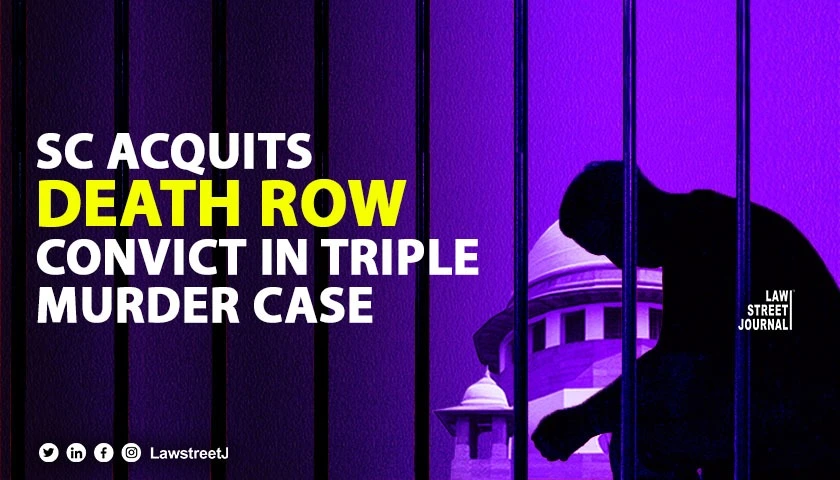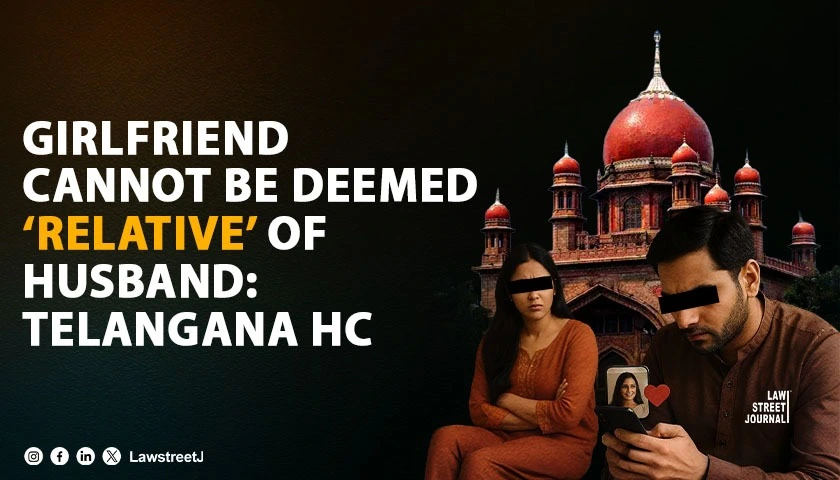NEW DELHI: The Supreme Court has said a conviction could be based solely on the basis of the evidence of a solitary witness, however, the testimony of such a witness is required to be found to be credible and trustworthy. It is also necessary to examine the testimony of such a witness critically.
The top court acquitted a man, who was awarded death penalty in a case of killing his mother, wife and a two-year-old daughter for his alleged extra marital affair in Pune in 2012.
A bench of Justices B R Gavai, Prashant Kumar Mishra and K V Vishwanathan said the suspicion, however strong it may be, cannot take the place of proof beyond reasonable doubt.
"An accused cannot be convicted solely on the ground of suspicion, no matter how strong it is. An accused is presumed to be innocent unless proved guilty beyond a reasonable doubt," the bench said.
The court allowed an appeal filed by Vishwajeet Kerba Masalkar against the Bombay High Court's 2019 and the trial court's 2016 judgments, holding that those were not sustainable in law.
With regard to the circumstance of motive of extra marital affair, the bench said, "We find that solely on the basis of circumstance of motive, a conviction cannot be based."
According to the police, the appellant initially misled them about the theft at his house on October 4, 2012 by filing a complaint but all the stolen jewellery, besides the blood stained clothes, and hammer used in the offence were recovered at his instance. The prosecution also relied upon testimony of Madhusudan Kulkarni, injured in the incident.
However, the bench said, "on a deeper scrutiny, we do not find that the testimony of Kulkarni is one which would inspire confidence in the mind of the court to base the conviction for the offence punishable under Section 302 of IPC."
The bench pointed out Kulkarni's statement was recorded after six days. Secondly, when the evidence shows that he was conscious and oriented on the date of the incident, no neighbour has been examined to corroborate his testimony.
Though even according to him, after the incident, the neighbours had come and he himself had asked them to get the doctor there only.
Thirdly, his testimony does not show that he has witnessed the incident and he himself admitted that he had given the statement after he was informed by the police that the present appellant had committed the crime, the bench pointed out.
Finding his testimony as full of contradictions, the bench said, "A conviction could be based solely on the basis of the evidence of a solitary witness, however, the testimony of such a witness is required to be found to be credible and trustworthy. It is also necessary to examine the testimony of such a witness critically."
The court also noted the circumstances which have been relied on by the trial court are –recovery of hammer; blood-stained clothes; and CCTV Footage -- which the High Court itself has disbelieved. It also pointed out those recoveries were made from open place accessible to all. The court also found difficult to believe that the hammer recovered from a canal after three days could still carry blood on it, despite a flow of water.
"It is a primary principle that the accused “must be” and not merely “may be” guilty before a court can convict and every possible hypothesis except the guilt of the accused has to be ruled out. In our considered opinion, in the present case, the prosecution has failed to do so," the bench said, setting aside the conviction of the appellant.
The bench further explained the circumstances from which the conclusion of guilt is to be drawn should be fully established.
The court pointed out that it is a primary principle that the accused ‘must be’ and not merely ‘may be’ proved guilty before a court can convict the accused.
Citing Sharad Birdhichand Sharda Vs State of Maharashtra (1984), the bench said, it has been held that there is not only a grammatical but a legal distinction between ‘may be proved’ and ‘must be or should be proved’. It has been held that the facts so established should be consistent only with the guilt of the accused, that is to say, they should not be explainable on any other hypothesis except the one where the accused is guilty. It has further been held that the circumstances should be such that they exclude every possible hypothesis except the one to be proved. It has been held that there must be a chain of evidence so complete as not to leave any reasonable ground for the conclusion consistent with the innocence of the accused and must show that in all human probabilities, the act must have been done by the accused.

















